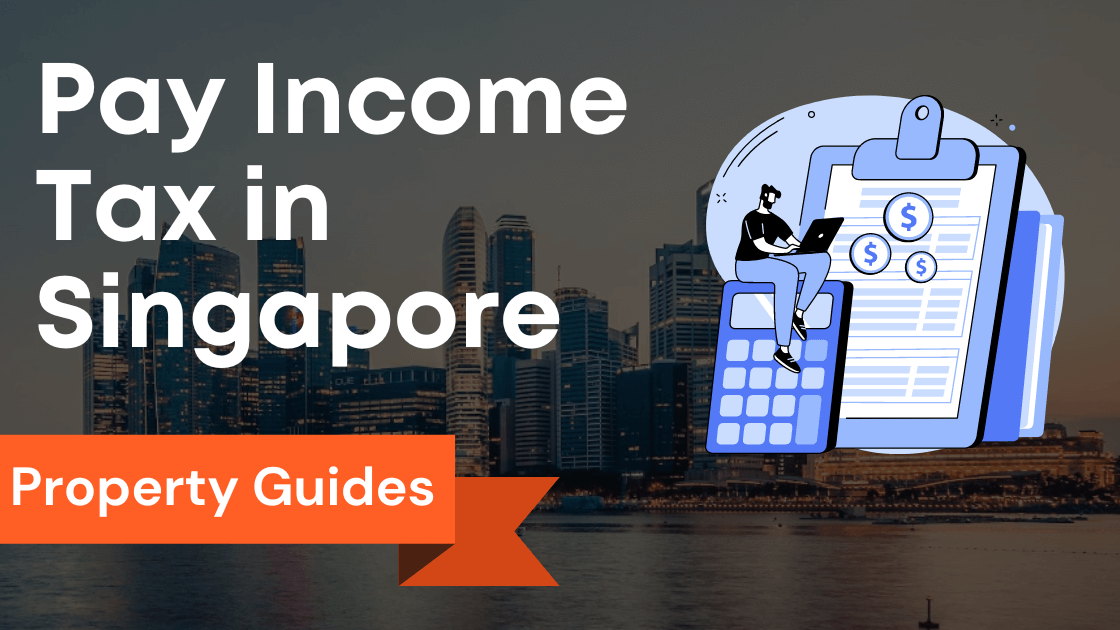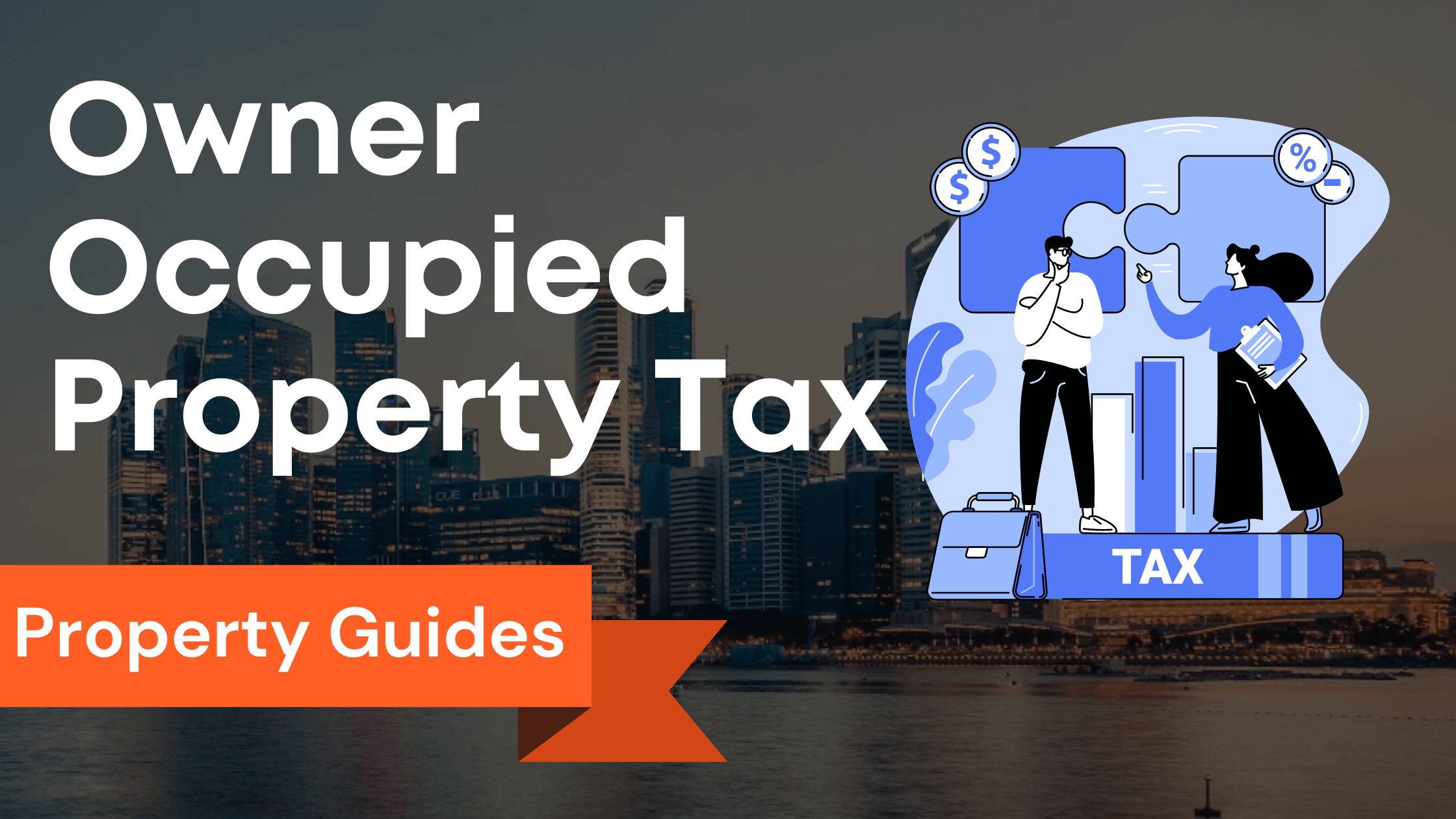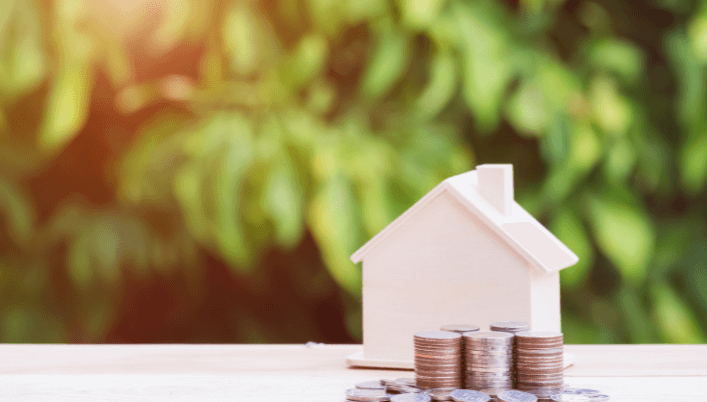
In this article, we unravel the intricacies of HDB property tax, guiding you through calculations and regulations that determine your tax liability.
From the mystical annual value to tax rate dynamics, we empower HDB owners with insights into managing property tax expenses.
Explore the past, anticipate the future, and master the art of property taxation for a harmonious financial future.
Key Takeaways
- HDB Property Tax Overview: HDB property tax is a levy on HDB flats in Singapore, calculated based on the annual value of the property. It varies depending on the property’s type, location, size, age, and condition.
- Annual Value Calculation: The annual value represents the estimated annual rental income of a property if rented out. It’s determined by the IRAS, considering market conditions and factors like size and location.
- Property Tax Rates: Property tax rates for HDB flats are progressive, with owner-occupied flats having lower rates. Tax rates vary based on flat type and occupancy status.
- 2023 Rates and Changes: While no 2023 changes are announced, owners should stay updated through IRAS announcements for accurate financial planning.
- Impacts and Implications: Property tax affects expenses and budgeting for HDB owners. Higher property taxes can increase the annual value and influence rebates and government schemes.
- Property Tax Rebates: Tax rebates alleviate financial burdens. Owners should explore available rebates and criteria on the IRAS website.
- Maximizing Tax Efficiency: Strategies include monitoring annual value, challenging revisions, downsizing, and seeking professional advice for relief schemes.
- IRAS Role and Regulations: IRAS determines annual value, sets property tax rates, and offers resources to help HDB owners manage their tax liabilities.
- Future of Property Taxes: Property tax rates may change due to market and economic trends, requiring HDB owners to be prepared for potential adjustments.
- Planning for Changes: Owners can use resources like the IRAS property tax calculator, stay informed, and consider long-term strategies to manage property tax expenses effectively.
Understanding HDB Property Tax: Exploring the Basics and Beyond Owners to Pay
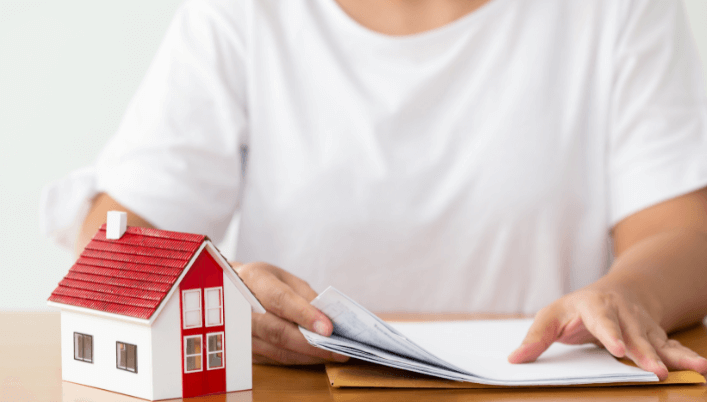
What is HDB property tax?
HDB property tax is a tax levied on HDB flats in Singapore.
It is calculated based on the annual value of the property, which is an estimate of its expected annual rent if it were to be rented out.
The property tax payable is derived by multiplying the property tax rate by the annual value of the rents of hdb flats.
How is property tax calculated for HDB flats?
The property tax calculation for HDB flats involves determining the annual value of the property and applying the corresponding tax rate.
The annual value of HDB flats is determined by the Inland Revenue Authority of Singapore (IRAS) and is subject to an annual review.
It takes into account factors such as the location, size, age, and condition of the flat.
What is the property tax rate for HDB flats?
The property tax rates for HDB flats vary depending on whether the flat is owner-occupied or rented out.
Owner-occupier tax rates are generally lower compared to residential tax rates for private properties.
The exact rates can be obtained from the IRAS website or myTax Portal.
Are there any changes in property tax rates for 2023?
As of now, there have been no specific announcements regarding changes in property tax rates for HDB flats in 2023.
However, it is advisable to stay updated with the latest announcements from the IRAS to ensure accurate planning and budgeting.
Property tax can have various implications for HDB flat owners.
Let’s explore some of the key ways in which property tax affects HDB flat owners.
How does property tax impact the annual value of HDB flats?
The property tax payable is one of the factors that contribute to the determination of the annual value of HDB flats.
A higher property tax payable can result in an increase in the annual value of the flat.
This value is taken into consideration for various purposes, including the calculation of property tax rebates and government schemes.
What are the implications of property tax for HDB owners?
For HDB flat owners, property tax is an essential component of their overall housing expenses.
It is important to factor in property tax when budgeting for homeownership costs.
The amount of property tax payable can vary depending on factors such as the size, location, and age of the flat.
Are there any tax rebates available for HDB flat owners?
Yes, there are tax rebates available for HDB flat owners.
These rebates are meant to alleviate the financial burden of property tax.
The specific rebates and eligibility criteria can be found on the IRAS website or by contacting the relevant authorities.
Understanding the annual value of HDB flats
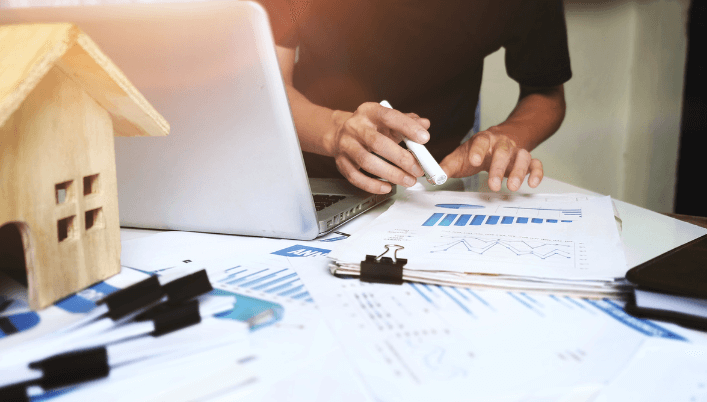
The annual value of HDB flats plays a crucial role in determining the property tax payable.
Let’s dive deeper into how the annual value is determined and the factors that can affect it.
How is the annual value of HDB flats determined?
The annual value of HDB flats is determined by the IRAS based on factors such as location, size, age, and condition of the flat.
It is an estimate of the expected annual rental income if the flat were to be rented out.
The IRAS conducts an annual review to ensure that the annual values are reflective of market conditions.
What factors can affect the annual value of HDB flats?
Several factors can affect the annual value of HDB flats.
Market rentals, changes in the neighborhood, and improvements made to the flat can impact the annual value.
The IRAS takes into account these factors during its annual review to ensure that the values are up-to-date and accurate.
How does the annual value of HDB flats impact property tax payable?
The annual value of HDB flats directly affects the property tax payable.
A higher annual value indicates a higher expected rental income, leading to a higher property tax payable.
It is essential for flat owners to understand the impact of the annual value on their property tax bills to plan their finances effectively.
Exploring property tax changes for 2022 in property tax in Singapore
It is crucial for HDB flat owners to stay updated with any changes in property tax rates.
Let’s explore the changes in property tax rates for residential properties in 2022 and understand how they can affect HDB flat owners.
What are the changes in property tax rates for residential properties in 2022?
The specific changes in property tax rates for residential properties in 2022 can be obtained from the IRAS website or myTax Portal.
It is advisable to refer to official sources for accurate and up-to-date information on property tax rates.
How do the property tax changes for 2022 affect HDB flat owners?
The impact of property tax changes for 2022 on HDB flat owners depends on the specific changes implemented.
It is recommended that flat owners assess the potential impact by referring to the official announcements and seeking professional advice if needed.
Are there any exemptions or reliefs available for HDB flat owners regarding property tax?
Yes, there are exemptions and reliefs available for HDB flat owners regarding property tax.
These exemptions and reliefs aim to provide some financial relief for homeowners.
It is important to understand the eligibility criteria and the specific exemptions available to maximize savings on property tax.
Navigating property tax payable for HDB owners
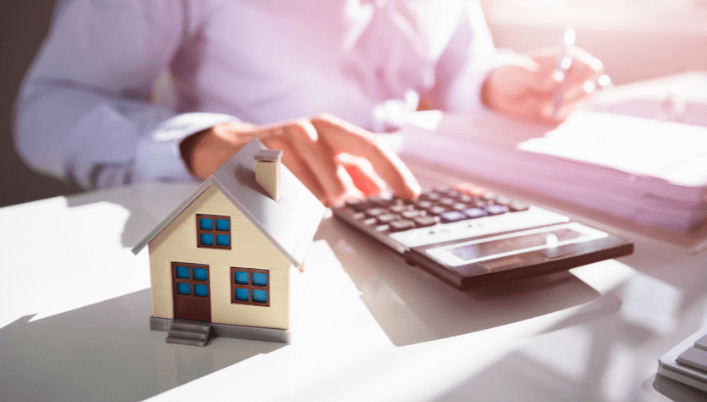
Calculating and managing property tax payable is crucial for HDB flat owners.
Let’s explore some key considerations and strategies to help flat owners navigate their property tax bills.
How can HDB flat owners calculate their property tax payable?
HDB flat owners can calculate their property tax payable by multiplying the annual value of their flat by the applicable property tax rate.
The exact calculation can be obtained from the IRAS website or by using the tools available on myTax Portal.
What are the key factors to consider when determining property tax payable for HDB flats?
When determining property tax payable for HDB flats, it is essential to consider factors such as the annual value, property tax rates, exemptions, and reliefs available.
Assessing the potential impact of these factors can help flat owners plan their finances and potentially reduce their property tax bills.
How can HDB flat owners reduce their property tax bill?
There are several strategies that HDB flat owners can consider to reduce their property tax bills.
These include exploring available exemptions and reliefs, ensuring an accurate assessment of the annual value, and staying updated with any changes in property tax rates.
Seeking professional advice can also be beneficial in identifying potential savings opportunities.
Owner-Occupied HDB Flats: A Deep Dive into Property Tax Rates and the annual value of property
Understanding the current property tax rates for owner-occupied HDB flats
When it comes to owner-occupied HDB flats, property tax rates are determined based on the annual value (AV) of the property.
The AV is the estimated gross annual rental value of a property if it were to be rented out.
The AV revision typically occurs once every five years to ensure that property tax rates are in line with market rental rates.
Exploring the factors that determine the property tax rates for HDB flats
Several factors contribute to the determination of property tax rates for HDB flats.
These include the flat type, whether it is a five-room or executive flat, the subsequent properties owned by the owner, and whether the flat is owner-occupied or non-owner-occupied.
The Singapore Housing Board (HDB) provides concessionary property tax rates for owner-occupied residential properties to provide relief to HDB flat owners.
Tips for HDB flat owners to minimize their property tax liabilities
HDB flat owners can take advantage of various strategies to minimize their property tax liabilities.
One effective approach is to ensure that the property’s AV remains low.
This can be achieved by regularly reviewing the AV and challenging any excessive revision.
Additionally, owners can consider seeking professional advice to understand their eligibility for property tax relief schemes and leverage available deductions.
Maximizing Tax Rebates for HDB Flat Owners: Strategies and Insights
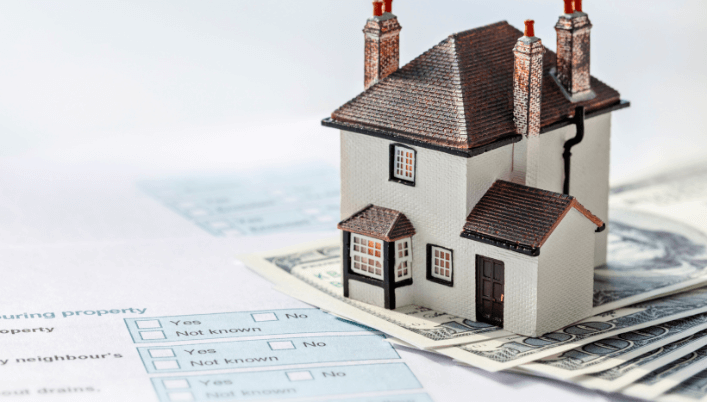
Analyzing the various tax rebate schemes available for HDB flat owners
The Singapore government offers several tax rebate schemes to provide relief to HDB flat owners.
These schemes aim to help owners cope with the increase in property tax rates and rising market rents.
Some of the common rebate schemes include one-off rebates, premium subsidies for MediShield Life, and property tax rebates for non-owner-occupied residential properties.
Strategies to maximize tax rebates and savings for HDB flat owners
To maximize tax rebates and savings, HDB flat owners can explore strategies such as downsizing their flats to reduce the annual value and subsequently the property tax payable.
They can also consider renting out a portion of their flat while maintaining the owner-occupancy status to take advantage of the lower owner-occupied property tax rates.
Insights on how property tax rebates impact HDB flat owners
The property tax rebates provided by the government can significantly ease the burden on HDB flat owners.
The rebates help offset the increase in property tax rates and provide financial relief for homeowners.
It is important for HDB flat owners to stay updated with the latest rebate schemes and take full advantage of them to manage their property tax liabilities effectively.
Rise in Property Tax Rates for HDB Flats: Analyzing the Trend
Examining the reasons behind the increase in property tax rates for HDB flats
In recent years, there has been a noticeable increase in property tax rates for HDB flats.
This can be attributed to various factors, such as the rise in market rentals, the revision of AV, and the need to maintain a balanced property tax system.
The government regularly reviews and adjusts property tax rates to ensure fairness and sustainability.
The impact of rising market rents on property tax rates for HDB flats
Rising market rents directly influence property tax rates for HDB flats.
As market rentals increase, the annual value of properties rises, leading to higher property tax liabilities for homeowners.
Therefore, it is crucial for HDB flat owners to monitor the rental rates of HDB flats in their area and assess the potential impact on their property tax payable.
Comparing the property tax rates for HDB flats in different years
By comparing property tax rates for HDB flats in different years, one can observe the fluctuations and trends.
This allows homeowners to anticipate any potential changes in property tax payable and financially plan for the future.
Understanding the historical context of property tax rates can provide valuable insights for HDB flat owners.
HDB Property Tax vs. Private Property Tax: A Comparative Analysis
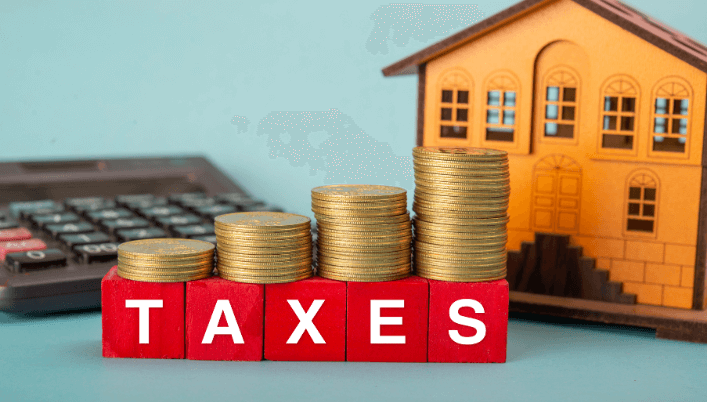
Understanding the key differences between property tax rates for HDB flats and private properties
Property tax rates for HDB flats and private properties differ in several aspects.
The applicable tax rates, calculation methods, and eligibility criteria for tax relief schemes vary between the two property types.
It is important for property owners to be aware of these differences to assess their property tax liabilities accurately.
Analyzing the factors that contribute to the variation in property tax rates
Several factors contribute to the variation in property tax rates for HDB flats and private properties.
These factors include the annual value, property type, property ownership, and prevailing market conditions.
Understanding these factors can help property owners gain insight into the calculation of their property tax liabilities.
The implications of property tax differences for HDB flat owners and private property owners
The differences in property tax rates between HDB flats and private properties have implications for both types of property owners.
HDB flat owners can benefit from lower property tax rates due to concessionary rates for owner-occupied properties.
On the other hand, private property owners may have higher property tax liabilities due to their typically higher market value.
Managing Property Tax Liabilities: Tips for HDB Flat Owners
Exploring strategies to effectively manage and reduce property tax liabilities
HDB flat owners can adopt several strategies to effectively manage and reduce their property tax liabilities.
This includes staying informed about property tax regulations, seeking professional advice, reviewing and challenging the AV revision, and taking advantage of available tax relief schemes and deductions.
Understanding the eligibility criteria for property tax relief schemes
To benefit from property tax relief schemes, HDB flat owners must meet certain eligibility criteria.
These criteria may include factors such as the ownership period, owner-occupancy status, and total annual income.
It is important for homeowners to familiarize themselves with these criteria and ensure they meet the requirements to avail of the tax relief schemes.
Insights on seeking professional advice to navigate property tax regulations
Given the complexity of property tax regulations, seeking professional advice can be highly beneficial for HDB flat owners.
Tax professionals can assist homeowners in understanding the intricacies of property tax calculations, provide guidance on eligible deductions, and help optimize their overall tax management strategy.
By following these strategies and tips, HDB flat owners can ensure that they effectively navigate the realm of property tax and minimize their tax liabilities.
It is essential for homeowners to stay informed, regularly review their property tax situation, and take advantage of available relief schemes to optimize their financial planning.
The Role of IRAS in Property Taxation: Regulations and Guidelines
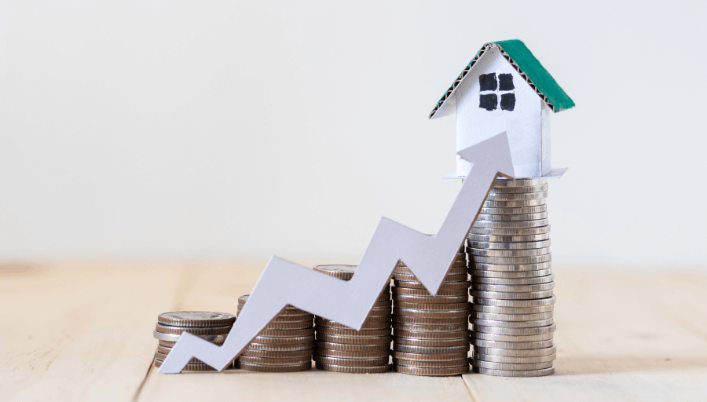
What is the annual value of an HDB flat?
The annual value of an HDB flat is a crucial factor in determining the property tax payable by HDB flat owners.
It represents the estimated gross yearly rent of a property if it were to be rented out.
The annual value is determined based on factors such as the location, size, age, and condition of the flat.
How is the annual value of an HDB flat determined?
The annual value of an HDB flat is determined by the IRAS based on a thorough review of properties in the area.
The IRAS analyzes factors such as recent market transactions, rise in market rents, and increase in market rentals to assess the annual value of each property.
It is important to note that the annual value may be revised periodically to reflect changes in the property market.
What is the significance of the annual value in property taxation?
The annual value plays a vital role in property taxation as it serves as the basis for calculating the property tax payable by HDB flat owners.
The property tax rate is applied to the annual value to determine the tax amount.
Therefore, a higher annual value will result in a higher property tax payment, while a lower annual value will lead to lower tax liability.
Will the annual value of HDB flats change in 2023?
As of January 2023, the annual value of HDB flats may change.
It is important for HDB owners to stay informed about any revisions in the annual value of their properties to accurately calculate their property tax liabilities.
The government takes into consideration various factors, including market conditions and economic trends, when determining the annual value of properties.
How are property taxes calculated for HDB flat owners?
The calculation of property taxes for HDB flat owners involves considering the annual value of the property and applying the property tax rate.
The property tax rate applicable to HDB flats is generally lower compared to non-owner-occupied residential properties.
What is the property tax rate for HDB flats?
The property tax rate for HDB flats is based on a progressive tax structure.
Three-room flats have the lowest tax rate, followed by five-room and executive flats.
The tax rate increases for non-owner-occupied flats, which refers to HDB flats that are not occupied by the owner or their immediate family members as their primary residence.
Are there any changes in property tax rates for HDB owners in 2022?
In 2022, there were no significant changes in property tax rates for HDB owners.
However, it is important to keep in mind that the property tax rates may be subject to adjustments in future years.
HDB owners should regularly review their property tax notices to stay updated on any changes in the tax rates.
What does the future hold for property taxes in HDB flats?
The future of property taxes in HDB flats is subject to various factors, such as changes in the property market, government policies, and social support schemes.
While it is difficult to predict the exact trajectory of property tax rates, HDB owners should be prepared for potential changes and consider how they may impact their financial planning.
How will the majority of HDB owners be affected by property tax changes?

With the potential changes in property tax rates, HDB owners may wonder if they will be required to pay higher property taxes.
Will HDB owners be required to pay higher property taxes?
While it is possible for property tax rates to increase, it is important to note that the government considers the impact on the majority of HDB owners before making any significant changes.
The government strives to strike a balance between collecting revenue and providing support to HDB owners.
Therefore, any adjustments in property tax rates are likely to be implemented with careful consideration of the overall impact on HDB owners.
What are the implications for HDB owners in 2023?
In 2023, HDB owners may experience changes in their property tax payable.
As the annual value of HDB flats plays a crucial role in property tax calculation, any revisions in the annual value will directly impact the tax liability of HDB owners.
It is advisable for HDB owners to plan their budget and factor in any potential increase in property tax expenses.
What measures can HDB owners take to manage property tax expenses?
HDB owners who are concerned about the potential increase in property tax expenses can consider various strategies to mitigate the impact.
One approach is to explore social support schemes, such as property tax rebates or financial assistance programs offered by the government.
Additionally, HDB owners can assess their financial position and explore options to manage their property tax payments by spreading them over monthly instalments.
What are the eligibility criteria and benefits of concessionary tax rates for HDB owners?
HDB owners may be eligible for concessionary tax rates, which can help reduce their property tax burden under certain conditions.
Who qualifies for concessionary tax rates in HDB flats?
HDB owners who meet specific criteria, such as being Singapore citizens or permanent residents, and fulfilling the ownership requirements, may qualify for concessionary tax rates.
The eligibility criteria may vary depending on factors such as the type of HDB flat and the ownership period.
What are the advantages of availing concessionary tax rates?
Availing of concessionary tax rates can provide HDB owners with benefits such as reduced property tax liability.
By taking advantage of these rates, HDB owners can effectively manage their property tax expenses and allocate their financial resources more efficiently.
How can HDB owners apply for concessionary tax rates?
HDB owners who qualify for concessionary tax rates can apply for them through the IRAS website or by contacting the IRAS directly.
It is important for HDB owners to gather all the necessary documents and fulfill the eligibility criteria before applying for the concessionary tax rates.
How can HDB owners plan for future property tax changes?
To better navigate potential property tax changes in the future, HDB owners can adopt certain strategies and utilize available resources.
What are some long-term strategies to deal with potential property tax increases?
HDB owners can consider long-term strategies such as budgeting for potential property tax increases, diversifying their investments, and staying updated on government policies related to property taxation.
By having a proactive approach to managing property tax expenses, HDB owners can make informed financial decisions that align with their long-term goals.
Are there any tools or calculators to help HDB owners estimate their property tax?
Yes, the IRAS provides a property tax calculator on its official website.
HDB owners can utilize this tool to estimate their property tax liabilities based on their property’s annual value.
The calculator takes into account the relevant tax rates and provides a valuable resource for HDB owners to plan their finances effectively.
What are some resources and guidance available for HDB owners?
HDB owners can access various resources and guidance related to property tax through the IRAS website.
The IRAS provides comprehensive information on property tax regulations, eligibility criteria for concessionary tax rates, and other relevant guidelines.
HDB owners can refer to these resources to stay informed and ensure compliance with property tax requirements.
Conclusion
In conclusion, understanding the regulations and guidelines related to property tax is essential for HDB owners.
The annual value of an HDB flat serves as the basis for property tax calculation, and any changes in property tax rates can have an impact on HDB owners’ finances.
By staying informed, exploring options for managing property tax expenses, and utilizing available resources, HDB owners can effectively navigate the complexities of property taxation and plan for the future.
Embarking on a Quest: Understanding HDB Property Tax
Picture this: you’re the proud owner of an HDB flat, and property tax is a term that often surfaces.
In this guide, we decode the concept of HDB property tax, its significance, and why it matters to you as a homeowner.
The Calculated Path: Navigating HDB Property Tax Calculation
Ever wondered how property taxes are calculated for HDB flats? Uncover the step-by-step process as we demystify the intricacies of property tax calculation.
From annual value assessment to applying tax rates, we’re your compass through the labyrinth of figures and formulas.
Foreseeing the Horizon: Changes in Property Tax for HDB Owners
Change is inevitable, even in the realm of property taxation.
We provide insights into the potential shifts in property tax rates and how they could impact HDB owners.
Stay prepared and informed to adapt to these changes with confidence.
Exclusivity and Benefits: Concessionary Tax Rates for HDB Owners
Exploring the realm of concessionary tax rates, we unveil the benefits and eligibility criteria that can help alleviate your property tax burdens.
Find out how you could qualify for these rates and unlock opportunities for financial relief.
Empower Your Financial Strategy: Tools and Insights for HDB Owners
Equipped with knowledge and resources, you can navigate the world of property taxation with finesse.
Discover tools and calculators that empower you to estimate your property tax and explore valuable insights to strategize your financial approach.
Charting Your Path: Planning Ahead for HDB Property Tax
As you continue on your journey through this guide, remember that understanding HDB property tax is not just about numbers; it’s about making informed decisions that shape your financial future.
With insights, strategies, and expert guidance, you’re empowered to navigate the intricate landscape of HDB property tax with confidence and clarity.
Your HDB flat is not just a home; it’s an investment, and this guide is your compass to steer it toward a more prosperous future.
Frequently Asked Questions
Q:What is HDB property tax?
A: HDB property tax is a tax payable by the owners of HDB (Housing Development Board) properties in Singapore.
Q: How is the annual value of a property determined?
A: The annual value of a property is determined by the government, and it is based on factors such as the property’s location, size, and market rents of similar properties in the area.
Q: Will owners have to pay higher property tax in 2022?
A: The government has announced that owners of higher-value properties will have to pay higher property tax starting from 2022.
Q: How much property tax will I have to pay?
A: The amount of property tax you have to pay depends on the annual value of your property.
The higher the annual value, the higher the property tax.
Q: Will there be an increase in property tax in 2023?
A: Yes, there will be an increase in property tax payable in 2023 for certain types of properties.
Q: What is the additional property tax?
Q: Will owners of HDB flats have to pay property tax?
A: Yes, owners of HDB flats are required to pay property tax.
Q: Will owners of one- and two-room HDB flats have to pay property tax?
A: Yes, one- and two-room HDB owner-occupiers will continue to pay property tax.
Q: Is there any tax rebate for owner-occupied HDB flats?
A: Yes, there is a tax rebate for all owner-occupied HDB flats to help mitigate the increase in property tax.
Q: Will the non-owner-occupier residential tax rate be affected?
A: No, the non-owner-occupier residential tax rate will not be affected by the increase in property tax.











